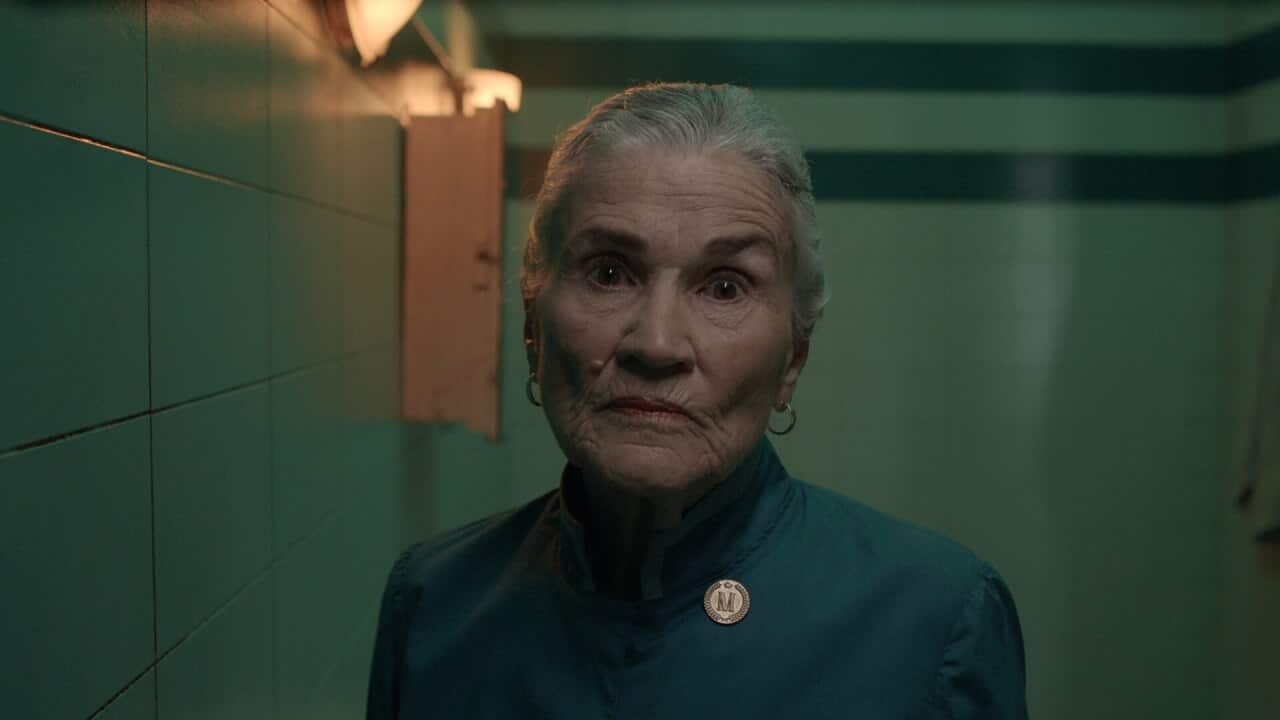The Bad Kids isn’t your run-of-the-mill crime or suspense drama. There are twists and turns, as you’d expect, but at its heart is a friendship between three children, and their attempts to navigate an adult world where their actions can have very real consequences.
It is also a wonderfully insightful show in its depiction of parent–child relationships and Chinese families. Depictions of Asian families – let alone Chinese ones – in Western popular culture are quite often one dimensional. Many of these can be tokenistic, whether this be intentional or otherwise, especially if they have been made for a Western audience. The Bad Kids skirts some of these minefields by virtue of being a Chinese television series, developed primarily for a Chinese audience.
The Bad Kids is adapted from Zijin Chen’s novel, Bad Kid, and straddles the line between suspense and murder mystery. The series begins with Zhang Dongsheng, a maths teacher in denial over his failing marriage, pushing his parents-in-law off a cliff on Mount Liufeng during a hike, in the hope that their absence will convince his wife not to get a divorce. This crime is inadvertently captured on camera by three children – Chaoyang, Yan Liang and Pupu – who happened to be on a day trip on the same mountain.
This discovery is the catalyst for an intrigue that slowly winds its way through a series of families, resulting in more murders, blackmail, revelations of affairs, arson and the unveiling of secrets between family members. It is apt, then, that the Chinese name of the show translates as Hidden Corners – there seems to be something sinister hidden behind every action made by any of the characters who have managed to get themselves tangled in this intricate web of secrets. Though the adults all have their own issues to deal with, the series focuses on the eponymous “kids” and their relationships with each other, as well as to those around them. Zhu Chaoyang is a precocious and studious child, doesn’t have many other friends, and lives with his divorced mother, Zhou Chunhong, who is often away for work. His father, Zhu Yongping, has a new wife and daughter, and between his new family and his work, seems to have increasingly little time for Chaoyang.
Though the adults all have their own issues to deal with, the series focuses on the eponymous “kids” and their relationships with each other, as well as to those around them. Zhu Chaoyang is a precocious and studious child, doesn’t have many other friends, and lives with his divorced mother, Zhou Chunhong, who is often away for work. His father, Zhu Yongping, has a new wife and daughter, and between his new family and his work, seems to have increasingly little time for Chaoyang.

The three children at the heart of the series. Source: SBS
Yongping is an example of a man who believes he can buy his son’s love, going so far as to abandon him on his birthday, but with the caveat that Chaoyang can eat whatever he wants off the menu to his heart’s content. Though their relationship does develop, it is marred by Chaoyang’s step-sister’s death, which also leads to the audience second-guessing Yongping’s motivations for wanting to bond with his son. Yan Liang is a primary school acquaintance of Chaoyang’s, and was placed in an orphanage after his father was arrested – and unbeknownst to him – placed in a mental hospital. Chen Guangsheng, Liang’s father’s arresting officer, feels somewhat responsible for Liang, protecting him as best he can from the reality of his father’s condition. Even so, the father–son reunion is absolutely gut-wrenching.
Yan Liang is a primary school acquaintance of Chaoyang’s, and was placed in an orphanage after his father was arrested – and unbeknownst to him – placed in a mental hospital. Chen Guangsheng, Liang’s father’s arresting officer, feels somewhat responsible for Liang, protecting him as best he can from the reality of his father’s condition. Even so, the father–son reunion is absolutely gut-wrenching.

‘The Bad Kids’. Source: Distributor
Pupu, the youngest of the three, is a friend of Liang’s from the orphanage, and needs 300,000 yuan to pay for her brother’s leukemia treatment. In a reflection of childhood friendship, the two older boys are extremely protective of her, and she has the ability to make them smile, even in the direst of circumstances.
In the absence of adult supervision and guidance, the children learn to fend for themselves, and in many instances, are more capable than they are given credit for. Chaoyang, Yan Liang and Pupu use their youth and supposed naivete to trick adults to their advantage, conspiring to use footage of the murder to raise the money Pupu needs for her brother. They are clever and resourceful, and the young actors imbue their performances and characters with empathy and care. Though the criminal actions in the series are certainly troubling, it is refreshing to watch a show that is honest about the realities many Chinese people face while remaining faithful to ingrained cultural norms. Some stereotypes, like that of the studious, maths-minded Chinese student who is encouraged (read: pushed) by a parental figure to excel at school are shown, but there are also moments where these are broken. For example, the girl who comes second to Chaoyang in his maths class has a father who doesn’t really care about her grades at all, and doesn’t get why his daughter is so insistent on performing well academically.
Though the criminal actions in the series are certainly troubling, it is refreshing to watch a show that is honest about the realities many Chinese people face while remaining faithful to ingrained cultural norms. Some stereotypes, like that of the studious, maths-minded Chinese student who is encouraged (read: pushed) by a parental figure to excel at school are shown, but there are also moments where these are broken. For example, the girl who comes second to Chaoyang in his maths class has a father who doesn’t really care about her grades at all, and doesn’t get why his daughter is so insistent on performing well academically.

‘The Bad Kids’. Source: Distributor
The series is also peppered with small, unassuming gestures – including, transitioning from “outdoor shoes” to house slippers, and in one instance, asking if they had to take off their shoes before entering a certain part of the house, eating rice for meals and birthday noodles – that make me feel seen. And this is not to mention the switching of dialect, depending on where a certain character is and who they’re talking to, a nod to the multiplicity of the term “Chinese” that is often lost in discussions around China in the West.
But you don’t have to be Chinese to enjoy the show. Every character in The Bad Kids has their own complicated story, and at times, complex motivations for the actions they choose to take, and ultimately, this is what makes the show compelling for all audiences.
The Bad Kids starts 10.50pm Tuesday 1 February on SBS VICELAND. The full series is also streaming .
Follow the author
More from The Guide

Fans of ‘The Bridge’ and ‘Follow The Money’ will love this Irish gem









